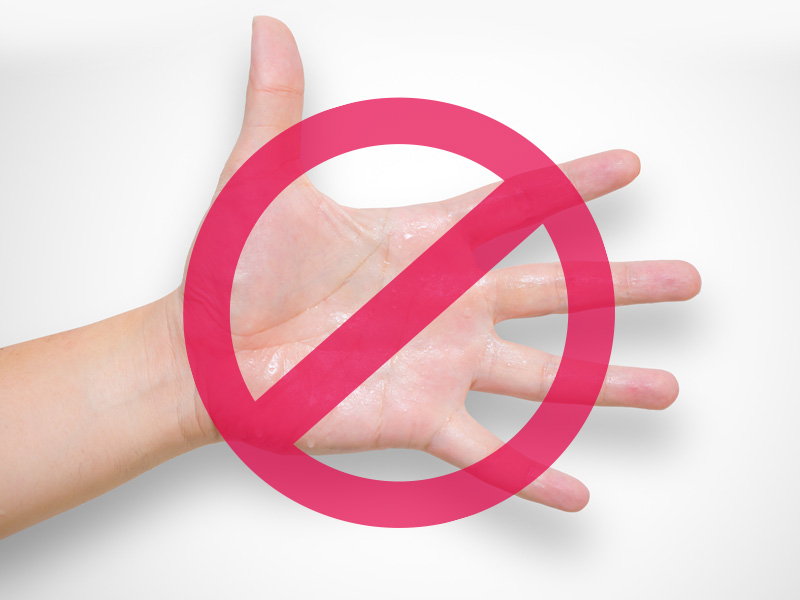Specialist Dermatology Solutions for Treatment of Hyperhydrosis of Hands: Comprehensive Overview
Specialist Dermatology Solutions for Treatment of Hyperhydrosis of Hands: Comprehensive Overview
Blog Article
Recognizing the Source of Excessive Sweating and Its Effect On Daily Life
While it is typically understood as a physical action to control body temperature, the triggers for too much sweating can vary widely amongst individuals, encompassing not just physical aspects but psychological and likewise emotional components. By delving into the origin causes of hyperhidrosis and discovering its diverse effects, a much deeper understanding of this pervasive concern can be gotten, shedding light on the intricacies that individuals grappling with too much sweating navigate on a day-to-day basis.
Physiology of Sweat Glands
The law of sweat production, a critical physiological procedure, is largely managed by the task of sweat glands dispersed across the human body. Sweat glands are categorized right into 2 main types: eccrine and apocrine glands.
When the body temperature level rises, either due to exercise, high temperature levels, or emotional stress and anxiety, the nervous system activates the gland to produce sweat. This sweat is composed mostly of water and electrolytes like salt and chloride. The process of sweat production is vital for keeping the body's inner temperature within a narrow, ideal variety, highlighting the important duty sweat glands play in human physiology.
Triggers for Excessive Sweating
In comprehending the root triggers of extreme sweating, it is vital to recognize the triggers that can lead to this physiological response. Excessive sweating, also called hyperhidrosis, can be triggered by various elements, both environmental and physiological. One common trigger is emotional stress or anxiety, which can stimulate the body's gland to generate even more sweat than is needed for cooling down. Physical effort, high temperatures, and spicy foods are likewise known to trigger excessive sweating in people vulnerable to this problem. Additionally, specific medical conditions like hyperthyroidism, menopause, or diabetes mellitus can add to too much sweating also.
Furthermore, drugs such as some antidepressants, opioids, and certain supplements can additionally serve as triggers for hyperhidrosis. Recognizing these triggers is necessary in managing too much sweating effectively - How to stop sweaty hands. By recognizing and addressing the specific triggers that trigger excessive sweating in a private, doctor can develop individualized therapy plans to ease this condition and enhance the person's quality of life
Medical Conditions Associated
Connected with too much sweating are various clinical problems that can exacerbate this physiological action. One usual condition is hyperhidrosis, a condition identified by extraordinarily enhanced sweating that goes beyond the body's thermoregulatory demands. This can materialize in focal locations like the palms, soles, underarms, or face, influencing an individual's top quality of life as a result of social shame and pain.
Furthermore, endocrine problems such as hyperthyroidism, diabetic issues, and menopausal hot flashes can also lead to too much sweating. Hyperthyroidism triggers an overproduction of thyroid hormonal agents, speeding up metabolic process and triggering sweating.
In addition, infections like consumption, HIV, and endocarditis have been connected with night sweats, a common sign known to interfere with sleep and influence general well-being. These clinical conditions highlight the varied series of underlying variables that can contribute to too much sweating, requiring comprehensive analysis and administration by medical care experts.
Psychological and Mental Variables

Effect on Social Communications
Excessive sweating can have extensive results on an individual's capability to involve conveniently in social communications. The visible indications of sweat discolorations or wet patches on apparel can lead to humiliation and self-consciousness, creating individuals to withdraw from social scenarios. This withdrawal can impact connections, limitation social tasks, and hinder personal and specialist development.

Moreover, the anxiety and self-confidence problems originating from too much sweating can influence interaction and social abilities. People might battle to concentrate on discussions, participate in group tasks, or share themselves with confidence. This can lead to click this site sensations of seclusion and isolation, as social links come to be testing to keep.
Verdict

While it is typically understood as a physical feedback to control body temperature, the triggers for too much sweating can differ commonly among people, including not only physical variables yet likewise emotional and emotional aspects. By delving right into the root creates of hyperhidrosis and discovering its multifaceted results, a deeper understanding of this pervasive issue can be gained, losing light on the intricacies that people grappling with excessive sweating navigate on a daily basis.
Physical physical effort, high temperatures, and spicy foods are likewise recognized to set off too much sweating in people prone to this condition. By recognizing and dealing with the specific triggers that prompt too much sweating in a private, healthcare service providers can create individualized treatment strategies to ease this condition and improve the person's top quality of life.
Excessive sweating can have extensive impacts on a person's ability to engage comfortably in social communications.
Report this page